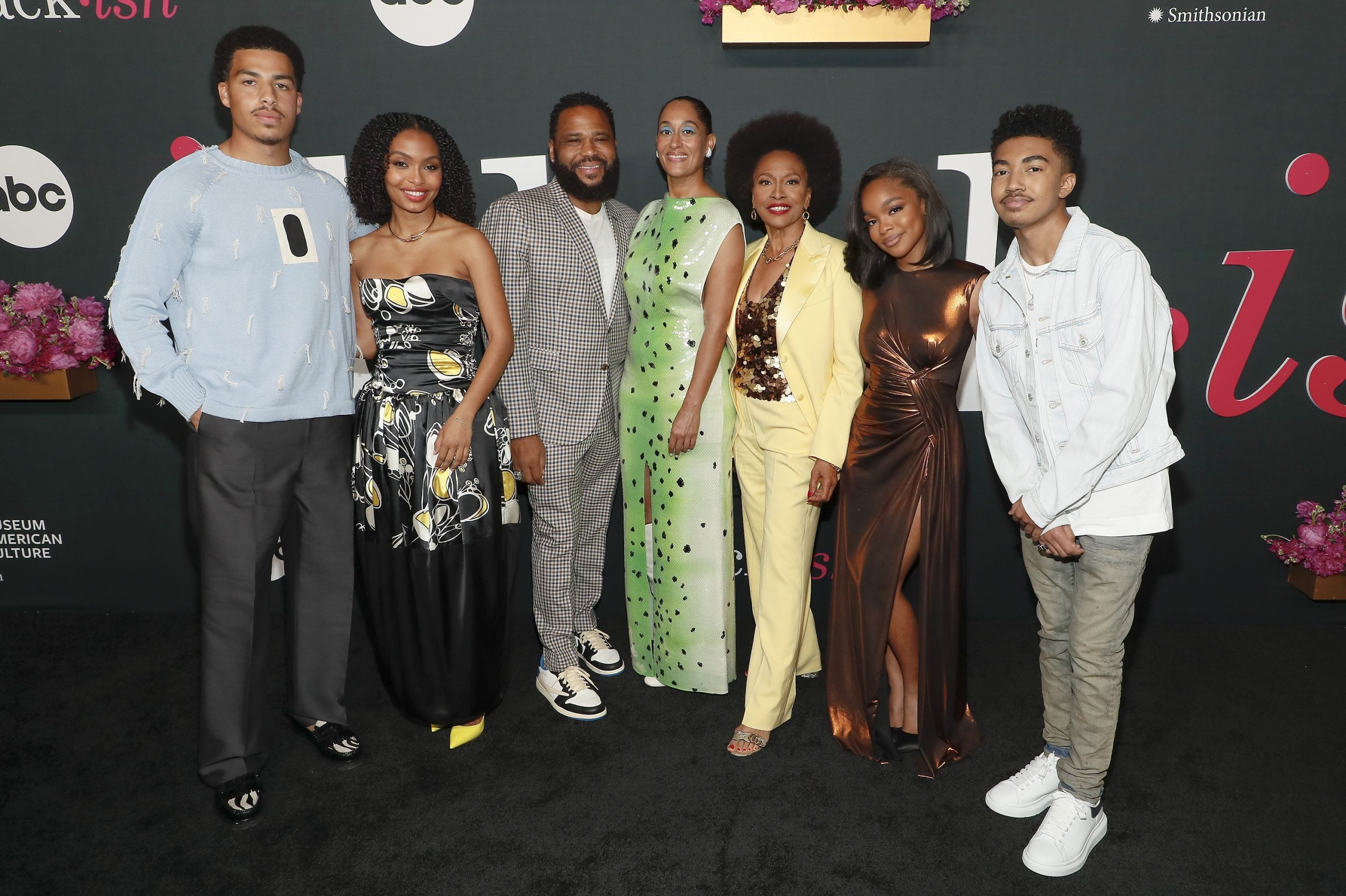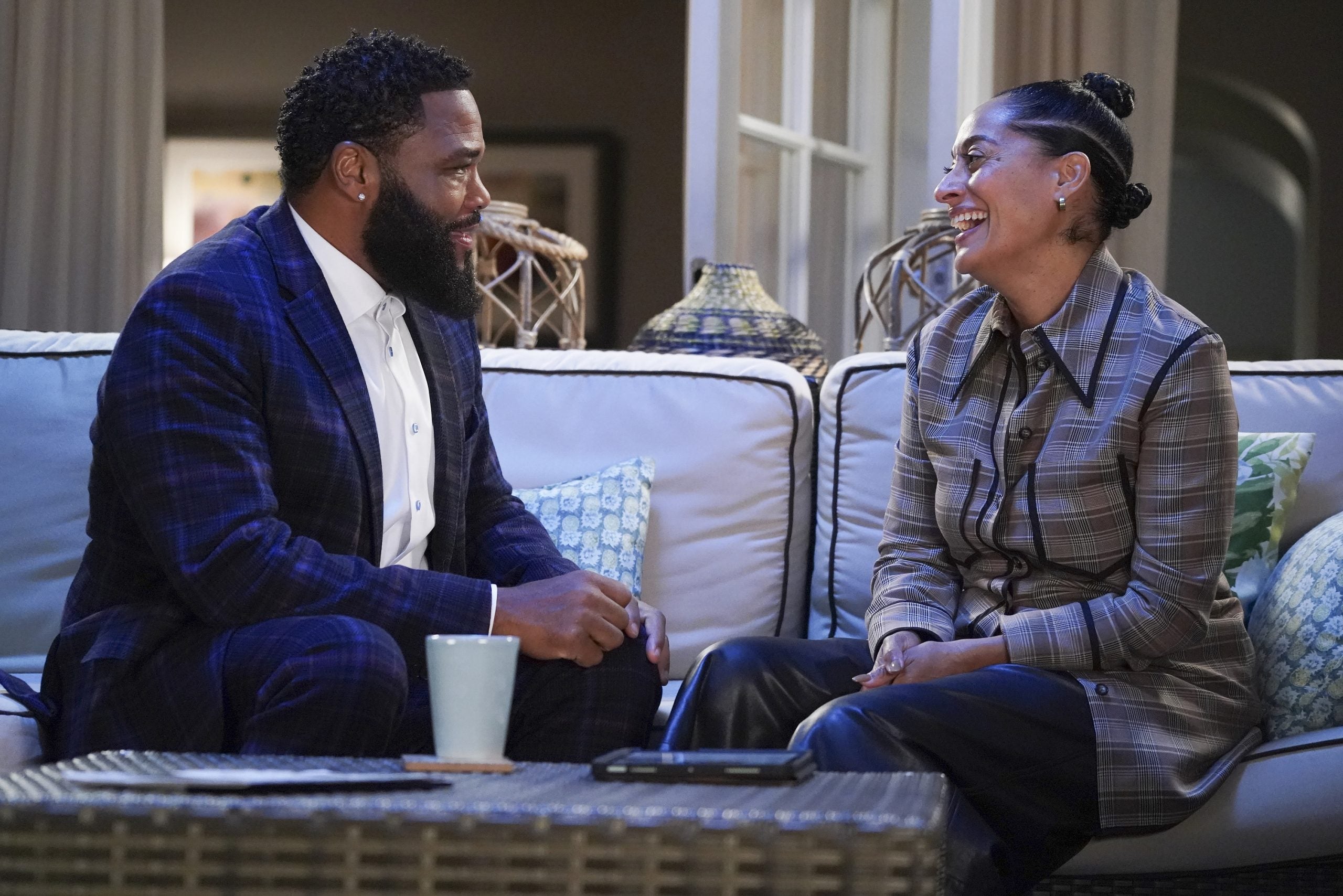
On Tuesday, the critically acclaimed sitcom Black-ish aired its final episode after eight seasons. Throughout its run on ABC, we saw the Johnson family live in a world progressive enough that a Black man from Compton can reach the heights of success, while at the same time still being subjected to both covert and blatant forms of racism, the latter of which many believe this country was built upon.
Loosely based on the life of show’s creator Kenya Barris, Black-ish was able to achieve what many other programs on network television could not; be able to properly address social issues, tackle emotional family problems such as death and divorce, and even got the audience to understand that growth is something that should happen with everyone, every day, regardless of age, race or gender – all while maintaining a high level of comedic relief.
Starring Anthony Anderson as Andre “Dre” Johnson and Tracee Ellis Ross as Dr. Rainbow Johnson, the show centered around a Black family of affluence (something not normally highlighted) and the often-overlooked struggle of being open to change – whether it be financial, social, or otherwise – while not losing oneself in the process. Andre and Rainbow were two parents who worked hard in order to provide a higher quality of life for themselves and their loved ones, but they found it much more important to instill Black culture their children Zoey (Yara Shahidi), Junior (Marcus Scribner), Jack (Miles Brown), Diane (Marsai Martin), and their youngest, DeVante (August and Berlin Gross), and continue to remind them who they are, and where they come from.

Many networks lack diversity in positions both in front of, and behind the camera. Black-ish was most significant in the fact that it was able to excel ratings-wise, and from a critical standpoint, showing the programs created by and starring people of color could translate to white audiences and succeed on a national scale. Barris’ creation was ingenious; it was not a sitcom about Black people, it was a show about everyone, it was just coming from a Black perspective.
The excellent writing in Black-ish helped to change how TV comedies spoke about race, culture, and people of color; most notably in the premiere of it’s second season, where the series tackled the use of the ‘N-word,’ along with the Juneteenth episode in 2017, produced amidst a country in turmoil and years ahead of the national eruption in the aftermath of George Floyd’s killing.
In its eight seasons, the show was nominated for multiple awards in several categories, including over 20 Primetime Emmys, 4 Screen Actors Guild Awards, and was honored at the Peabody Awards in 2015 for Entertainment. Black-ish reached another high point in 2017 with Tracee Ellis Ross winning the award for “Best Actress – Television Series Musical or Comedy” at the 74th annual Golden Globes, making her the first Black actress to receive that award in 34 years.
After the series finale, ABC aired a 20-minute news special titled black-ish: A Celebration. During which, Laurence Fishburne (who plays Andre’s father, Earl “Pops” Johnson), said that: “One of the things we set out to do from the very beginning was not just to entertain, but also to educate people.” Since its debut in 2014, Black-ish was able to maintain that balance, providing classic moments in comedy, while at the same time posing crucial questions about life, and pushing thought-provoking narratives that left audiences with something to take with them every week
The true legacy of Black-ish still remains to be seen, although its impact is undeniable. Subsequent shows like Insecure, Atlanta, and Abbott Elementary – all helmed by people of color – were able to succeed and grow in the TV space due to the foundation that Barris set with his award-winning sitcom. In recent years, there has been a shift in how television is both consumed, and it’s safe to say the Black-ish helped to move that needle in the right direction.




